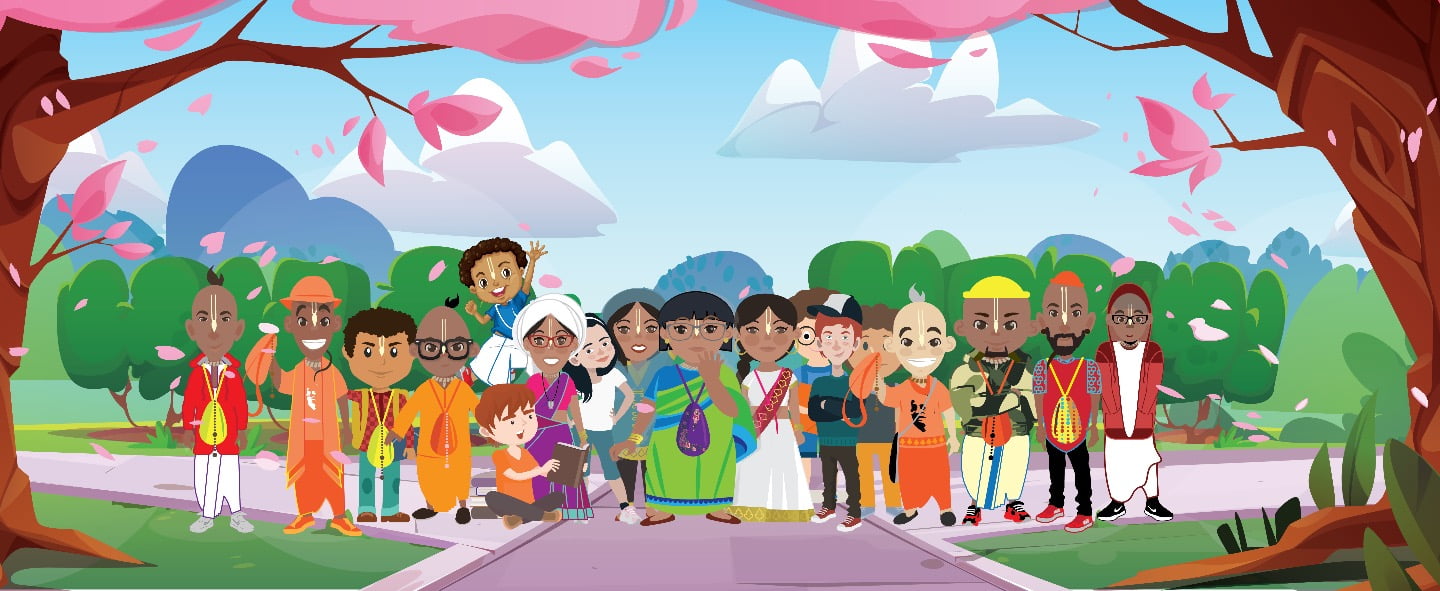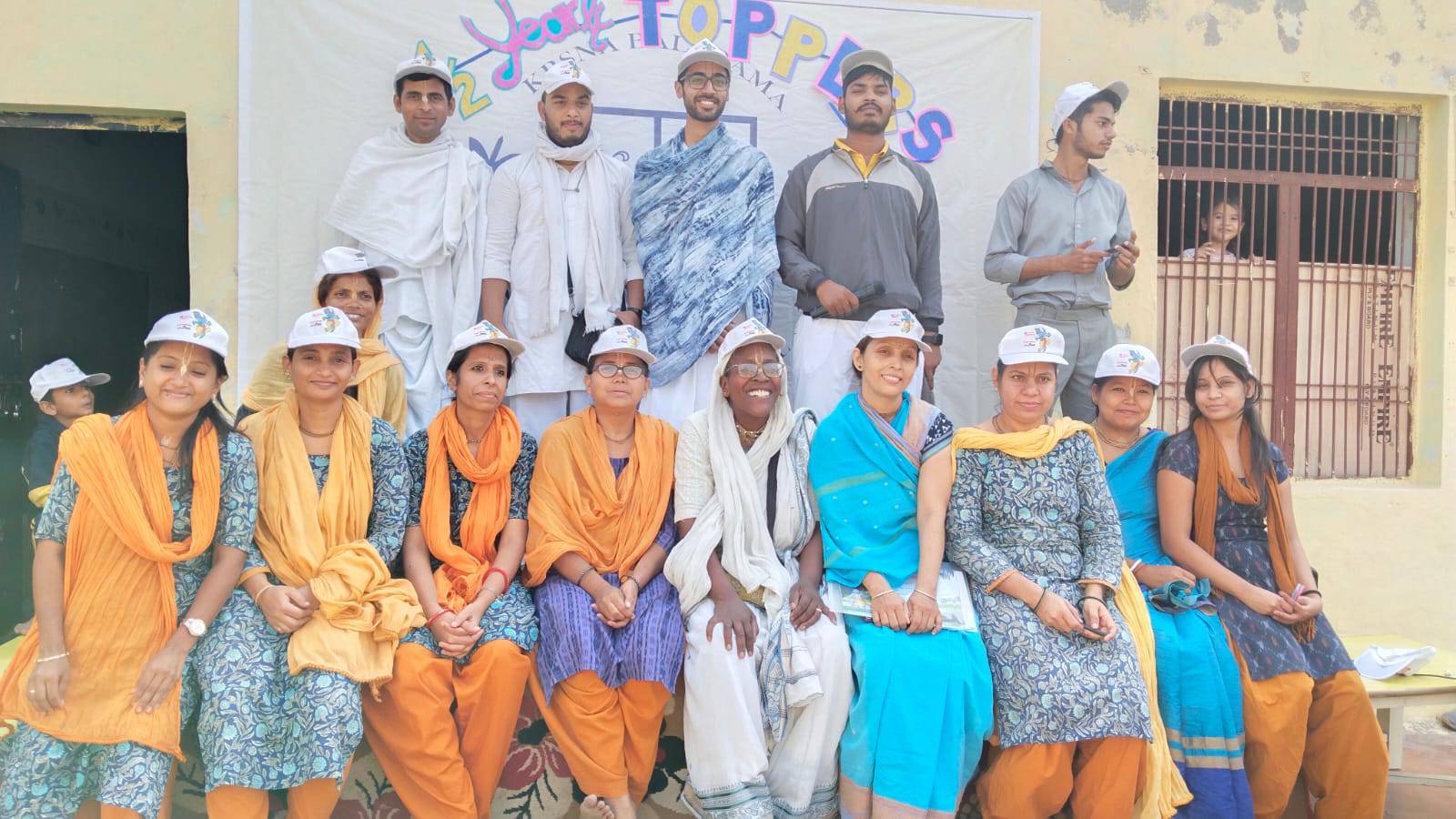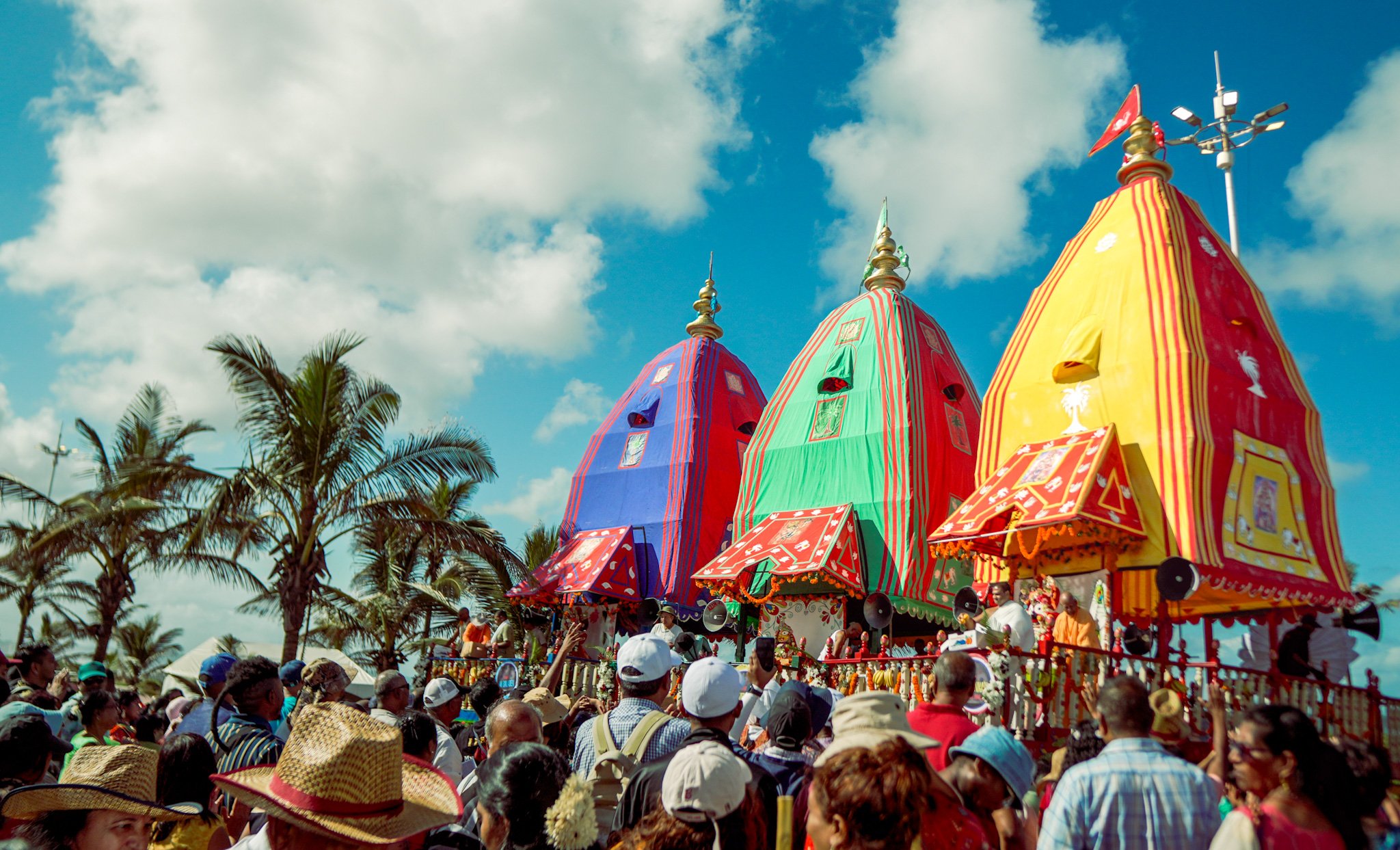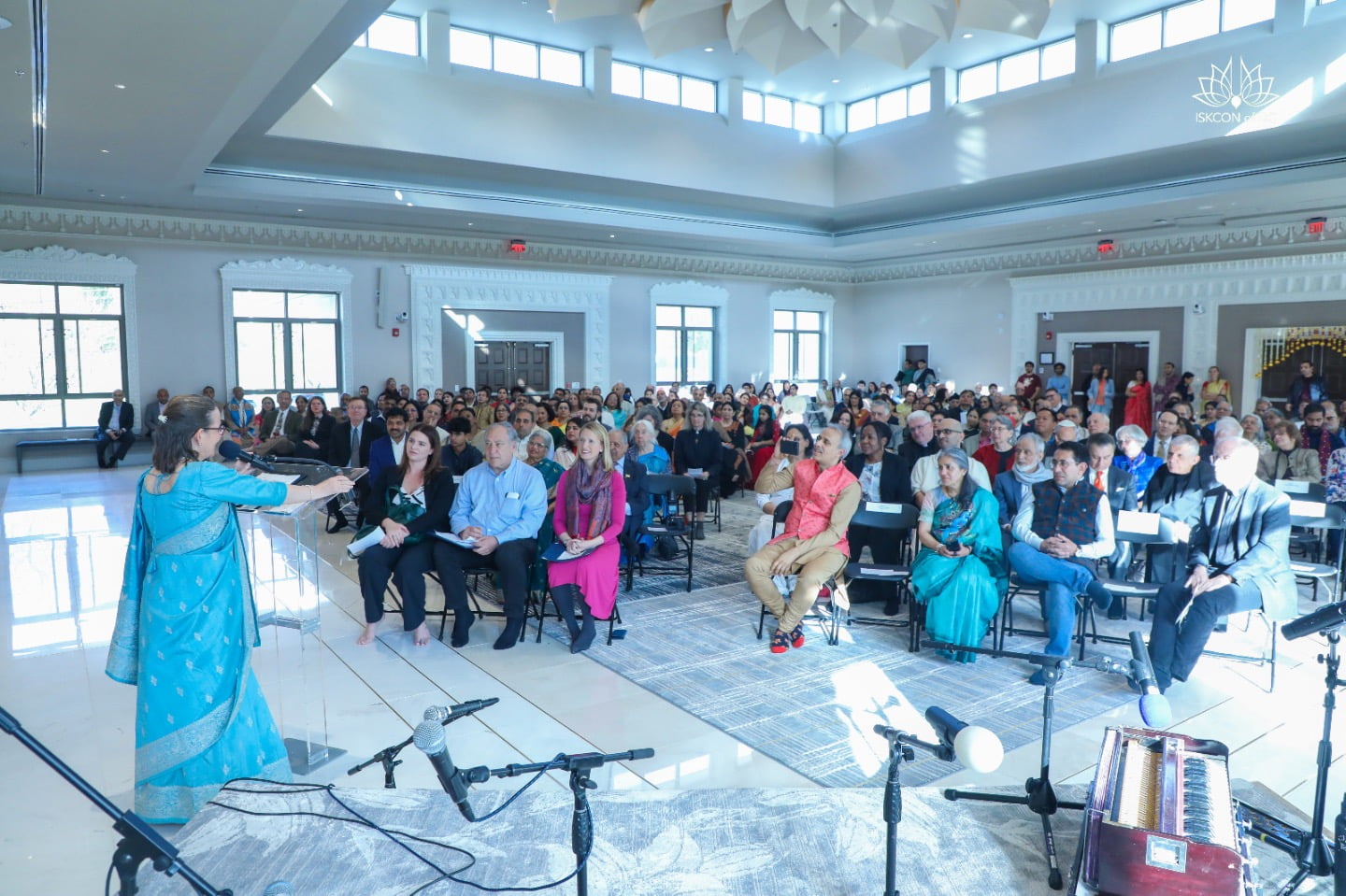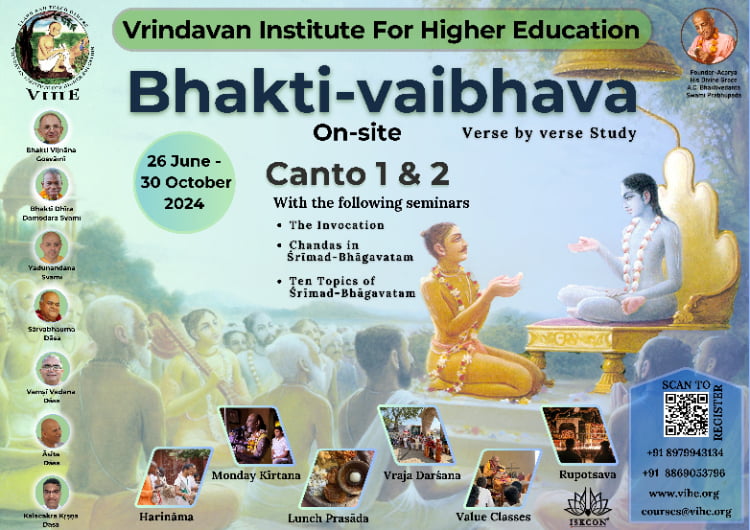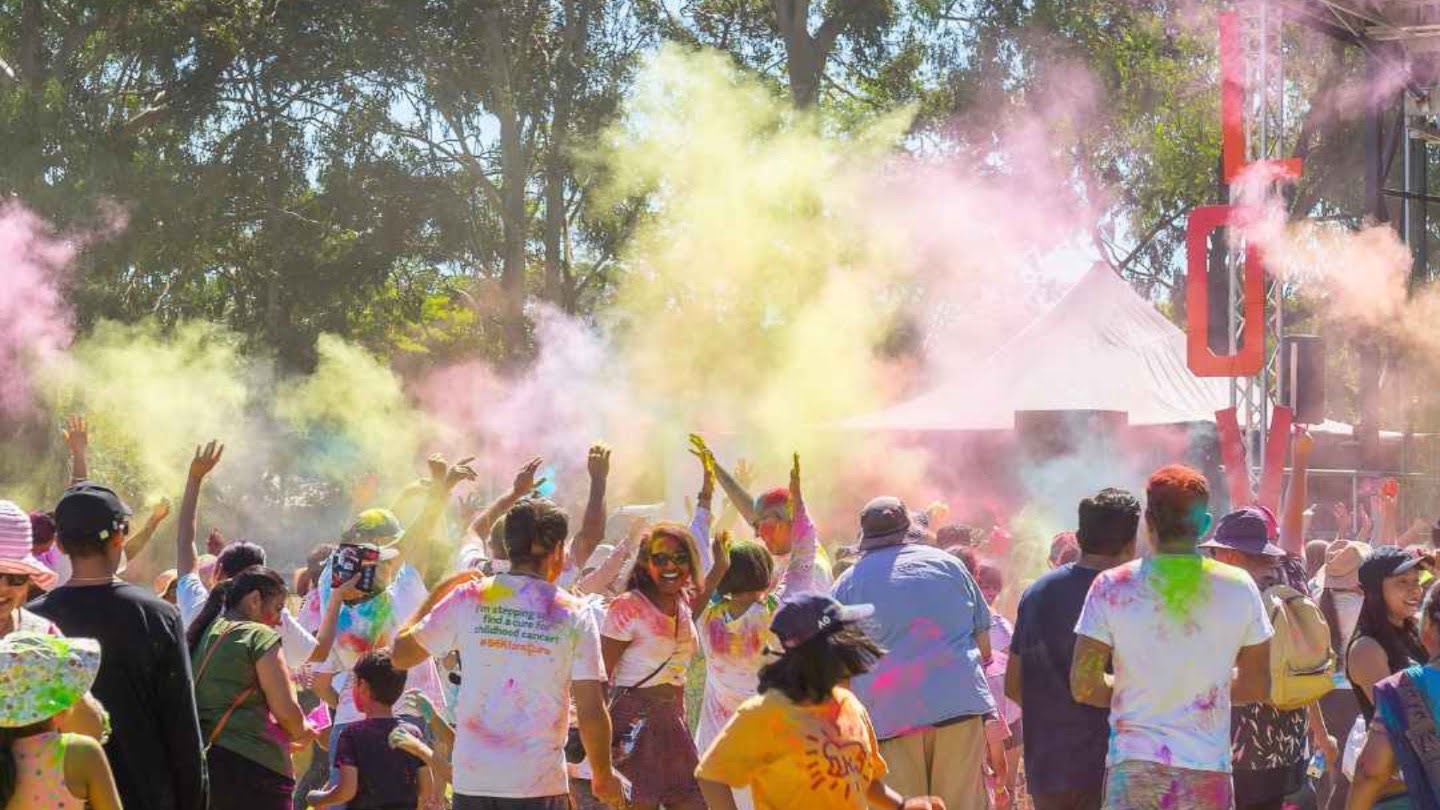Spiritual Activism Doc to Screen on Anniversary of Seattle WTO Protests
By Madhava Smullen | Nov 25, 2011
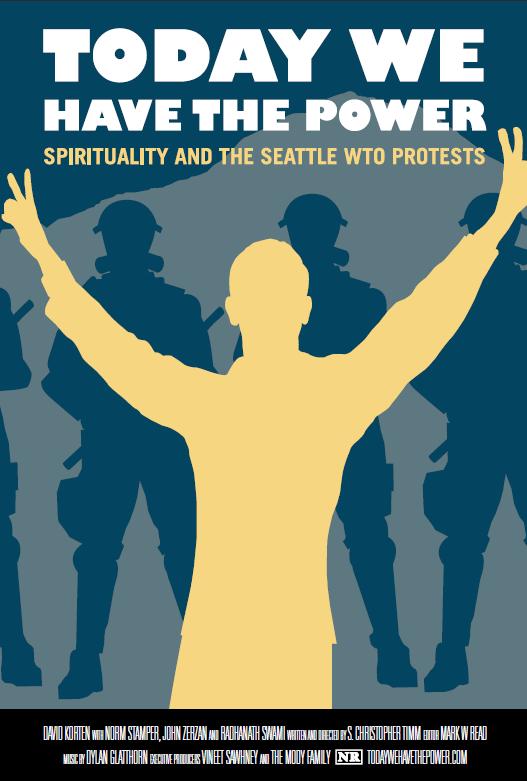
Residents of Seattle are set to get a sneak preview of a new documentary film about spiritual activism, directed by Radha-Vallabha Dasa—a brahmachari monk at New York’s Bhaktivedanta Ashram—on the 12th anniversary of the famous Seattle WTO protests.
The film will be screened twice, on Wednesday November 30th—the actual day of the protests back in 1999—and Thursday December 1st, at the Landmark Harvard Exit Theater in Seattle.
“Today We Have The Power” documents the day, twelve years ago this month, when 80,000 protestors descended upon Seattle to speak out against big corporations and the World Trade Organization (WTO), which was holding its biennial meetings at the time.
The outrage rose from the fact that countries were coming together at these meetings to negotiate trade agreements—agreements that saw multinational corporations taking advantage of weak labor and environmental protection laws in third world countries to increase their profits. The Global Free Logging agreement, for example, would have given American corporations free access to South American forests.
The selfishness of the modern system, ruled by corporations, was only highlighted more when Seattle Police reacted to a few anarchists amongst the thousands of peaceful protestors by brutally attacking the whole crowd with tear gas and riot gear.
In his film, Radha-Vallabha shows footage of that terrible day, and interviews key people on both sides of the issue. There’s leading activist David Korten, anarchist philosopher John Zerzan, Director General of the WTO Mike Moore, leading proponent of the WTO Jagdish Bhagavati, and former Seattle chief of police Norm Stamper, who today deeply regrets the police violence he led twelve years ago. There’s also Radhanath Swami, Radha-Vallabha’s guru and a leading spiritual teacher in the world today.
It’s clear that the film, which Radha-Vallabha has been working on for a decade, is more relevant than ever today, with the Occupy Wall Street movement expressing the same outrage over the denigration of human life, environmental destruction, and social decay that big corporations and their globalization cause.
So what can today’s protestors learn from the events of what is often remembered as “The Battle in Seattle”? Do the solutions lie in addressing economic systems, police brutality, or partisan politics?
For Radha-Vallabha Dasa, the answer is much more personal. “The overall message of the film is that there’s a necessity for us to carry out personal spiritual transformation if we hope to change the world—a message that has so far been largely ignored in discussions or documentaries about social activism,” he says.
Somewhat to Radha-Vallabha’s surprise, many of the people he interviewed for his film echoed his ideas—from former police chief Norm Stamper, who acknowledged his mistakes and agreed that a lack of spirituality was the problem, to anarchist philosopher John Zerzan, to David Korten, a leading activist and author of “When Corporations Rule the World,” which many refer to as “the Bible of the WTO protests.”
“I think that it’s an amazing and very significant thing that such a wide group of dissonant voices came to that same conclusion,” Radha-Vallabha says.
What’s even more amazing is how closely the message in David Korten’s book aligns with Srila Prabhupada’s Krishna conscious message.
“His conclusion is that ultimately, the root cause of our society’s problems is the atheistic materialism that our consumer culture is based on, the idea that happiness will come from getting more and more,” says Radha-Vallabha. “And that if we want to do something about it, we have an individual responsibility to embark on transforming ourselves. To find happiness through spiritual endeavor, through looking within rather than trying to get more and more stuff.”
Radha-Vallabha’s guru Radhanath Swami, whose teachings were the inspiration for the film, often makes the same point—that if we want to do something to change the world, we have to start with the ecology of our own heart.
Radha-Vallabha, who worked on “Today We Have The Power” as a labor of love for ten years and just completed it on November 23rd with the help of donations from friends and supporters, hopes the 350 seats at the Harvard Exit Theater will sell out on both nights of the screening.
He hasn’t taken any chances: he’ll be doing a host of radio and television interviews to promote the event, including an appearance on morning talk show New Day Northwest on Seattle’s local KING-TV on the day of the WTO protest. He’s also hired a PR firm, who have plastered the city with posters for the film, and have taken out advertisements in all of its major newspapers.
The film itself will be screened from 7pm till 8pm on both November 30th and December 1st. Speaking about the process of making it, Radha Vallabha says, “It contains a lot of footage filmed by activists who were actually at the WTO protests, including Mark Read, who teaches film-editing at NYU film school. In fact Mark, who has spent time in ashrams and has an affinity for Indian spirituality, also edited Today We Have The Power, while Dylan Glatthorn, a grad student majoring in film score composition at NYU, composed the original score for it.”
After the Wednesday screening there will be a panel discussion on the role of spiritual transformation in activism with David Korten, Janet Thomas—who wrote the book “Battle In Seattle”—and other local activists with spiritual leanings.
Meanwhile the Thursday screening will be followed by a fifteen-minute talk by Radha-Vallabha on his own thoughts about personal spiritual transformation as a way of changing the world, followed by questions and answers.
“It’s a topic that I’ve thought about a lot, and feel very passionately about,” he says. “In my talk I’ll cite the commitment to personal transformation that social reformers such as Martin Luther King Jr and Mahatma Gandhi had, and touch briefly on my own experiences with transformational processes such as chanting Hare Krishna.”
At the handful of previous screenings he’s done, Radha-Vallabha says that most people have found his film thought-provoking, some have found it transformational and deeply affecting, and some have naturally considered it not their cup of tea.
He hopes that most of his audience at the Seattle screening of “Today We Have The Power” will be of the former category, for the event could be what he needs to take the film to the next level.
“It’s incredibly difficult to break into the independent film industry—Sundance Film Festival receives 8,000 submissions each year for its sixty slots,” Radha-Vallabha explains. “And many of those are already filled by filmmakers with previous experience or good connections. Of course there are many smaller festivals which I will be submitting it to such as the Seattle Independent Film Festival and the Human Rights Film Festival. But I’m hoping that by creating my own event in Seattle, I’ll get some positive reviews, some good word of mouth, and generate interest from the independent film industry that will result in a distribution deal for the film.”
Either way, Radha-Vallabha, who is already pre-selling DVDs at todaywehavethepower.com, is determined to have some kind of release by Spring 2012 at the latest.
“I’ve seen dozens of documentaries over the past decade about corporate greed, exploitation, environmental destruction, and globalization,” he says. “But I never see spirituality being brought up in them. So my vision for this film is to have it bring spirituality into the forefront of conversations about activism. Because if even a small group of people begin to really take spiritual transformation seriously, we will be a step closer to truly making the world a better place.”
To book tickets for the Seattle sneak preview of Today We Have The Power on Wednesday November 30th and Thursday December 1st, and to pre-order DVDs of the film, please visit todaywehavethepower.com.



